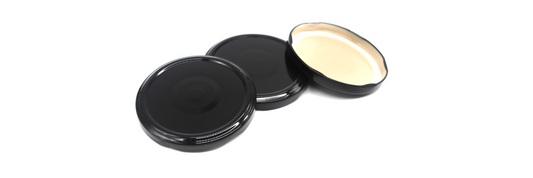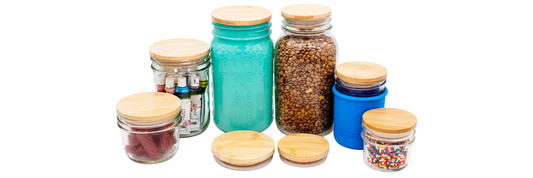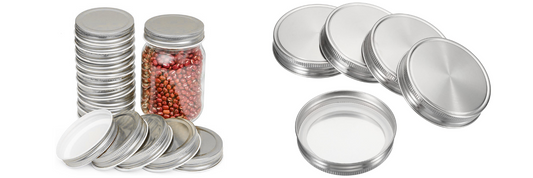Wood salad bowls have been a staple in kitchens for centuries, but the safety and benefits of using them are often debated. In this blog post, we will delve into the and cons of wooden salad bowls, explore the best types of wood for a salad bowl, discuss alternatives, and finally determine if wooden salad bowls are the right for your kitchen.
Pros and Cons of Wood Salad Bowl
Wooden Salad Bowl Benefits
Why use a wooden bowl for salad? Let's learn some benefits that wood bowls offer that make them a popular choice for serving and enjoying salads.
- Natural and Rustic Aesthetic: Wooden bowls have a warm and natural aesthetic that adds a touch of elegance and rustic charm to the table.
- Lightweight and Easy to Handle: Wooden bowls are lightweight, making them easy to handle and pass around the table.
- Non-reactive: Wooden bowls do not absorb oil, vinegar, or other salad dressing flavors or colors.
- Eco-Friendly: Compared to salad bowls made of plastic or other non-biodegradable materials, wooden salad bowls are a more environmentally friendly option because they are frequently made from sustainable and renewable resources. Selecting wooden bowls lessens the impact single-use or disposable alternatives have on the environment.

Wooden Salad Serving Bowl Drawbacks
While wood salad bowls have various benefits, they also come with a few potential drawbacks that should be taken into consideration. Here are some drawbacks associated with wooden bowls:
- Not Dishwasher Safe: The majority of wooden salad serving bowls cannot be cleaned in a dishwasher. For wooden bowls to preserve the quality and longevity of wooden bowls, hand washing is usually advised.
- Sensitivity to Temperature and Moisture: If you take improper care of a wooden bowl can lead to problems such as splintering, cracking, or discoloration. Mold, mildew, and bacteria can also grow on improperly cared-for wooden bowls.
What Is The Best Type Of Wood For A Salad Bowl?
Cherry Wood
Cherry is one of the greatest woods for a salad bowl. The cherry tree's heartwood, or the darker inner section, is rich and dark, and its sapwood, or the lighter outer section, is creamy and white, creating a stunning contrast. The wood's natural mineral deposits appear as black flecks, giving each bowl a distinctive appearance and presentation that really makes it one-of-a-kind.
The fact that cherry not only lasts forever but also improves with age is another fantastic advantage. Your bowl will truly appear richer, darker, and more exquisite with time than it did when you first purchased it.
Furthermore, cherry wooden bowls are completely safe to use with food because they don't require staining or fillers. Cherry wood is one of the most dependable types of wood among artisans.
Maple Wood
If you prefer woods with a darker tone, maple wood will work well. It's incredibly pretty, long-lasting, and food-safe. Its white doughy presentation gives a rustic beauty that can be quite alluring, and as it ages, it becomes better, taking on a lighter color.
Black Walnut
Black walnut salad bowls provide a striking contrast between light and dark brown hues. They are unique from all other woods in that they smell strongly of walnut. Food frequently absorbs some of the flavors from the wood, which you may or may not find appealing. Black walnut is also one of the more durable woods on the market.
Which Common Woods Should You Avoid?
Beech
The bowls are made of beech looking pretty good but untreated the wood will be yellow and turn gray in color. Many producers compensate for the lack of durability and fading color by staining, painting, or polishing the wood. This might help with the appearance and life of the bowl but these processes are not food-safe and should not come in contact with food.
Oak
Bowls made with oak just aren’t very durable, chip, and split easily. Oaks bowl does hold a stain quite beautifully, which is why the look of it easily sways many people. However, this staining is unsafe around food and only temporarily masks the defects.
Tips To Clean Your Wood Bowls
To clean your wood bowls, just follow these tips:
- Always handwash your bowls. Never soak wood bowls in water as prolonged exposure to water will affect the color and tone of the bowl, and dry it out.
- Use warm water and a mild soap to wash the surface. Dry with a soft cloth.
- Don’t put a wooden bowl in the dishwasher.
Alternatives of Wood Salad Bowls
- Glass: Glass serving bowls are common due to their elegant appearance and ability to showcase the vibrant colors of salads. They are non-porous, easy to clean, and resistant to staining. Glass bowls are also versatile and can be used for both casual and formal occasions.

- Ceramic or Porcelain: Ceramic or porcelain bowls are also durable and have aesthetic appeal. They come in a variety of designs and finishes, allowing you to select a bowl that suits your style. Ceramic bowls are usually dishwasher safe and retain heat well, keeping salads at the desired temperature.
- Stainless Steel: Stainless steel salad bowls are lightweight, durable, and resistant to rust and stains. They are easy to clean and maintain, making them a practical choice for busy kitchens. Stainless steel bowls also offer a modern and sleek look.
- Bamboo or Bamboo Fiber: Bamboo or bamboo fiber bowls are eco-friendly alternatives. They are lightweight, biodegradable, and often feature a natural and rustic appearance. Bamboo bowls are typically durable and easy to clean, but they may require occasional oiling to maintain their quality.
Frequently Asked Question
Do Wooden Bowls Require More Maintenance Than Other Materials?
Yes, compared to other materials, they need a little more upkeep. They ought to be cleaned by hand and not allowed soaked in water. To preserve their finish, they should also be oiled on a regular basis.
Are Wood Salad Bowls Dishwasher-Safe?
A dishwasher is not an option for wooden salad bowls. They may warp and crack due to the dishwasher's heat and moisture. To preserve their size and shape, they should be hand-washed in warm, soapy water and then wiped dry with a towel.
Should I Use A Wood Salad Bowl That Has Developed Cracks?
No, bacteria can grow in cracks and make it difficult to clean a bowl properly. Therefore, it's best to avoid using a wooden bowl that has fractures.
Can Wood Salad Bowls Be Engraved?
Yes, you can engrave a wooden bowl to add your personal touch. However, you should only have this done by a professional to protect the bowl's integrity.
Conclusion
In conclusion, wood salad bowls offer a unique charm and durability that many home cooks appreciate. While they require a bit more maintenance compared to other materials, the benefits of using a wooden salad bowl often outweigh the drawbacks. Consider your own preferences and kitchen habits when making the decision to add a wooden salad bowl to your collection.
Remember, the best salad bowl is the one that suits your needs and style the best!









